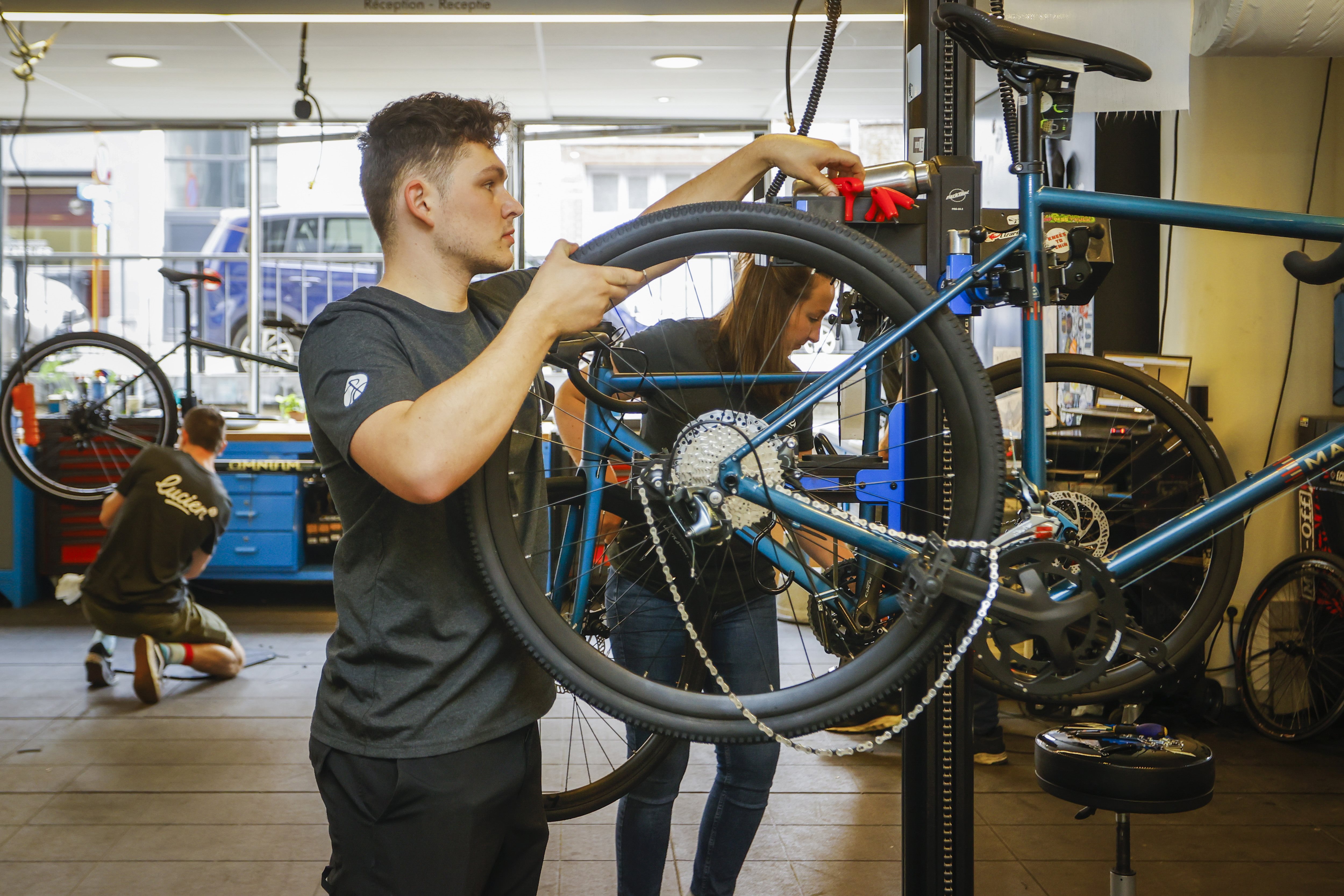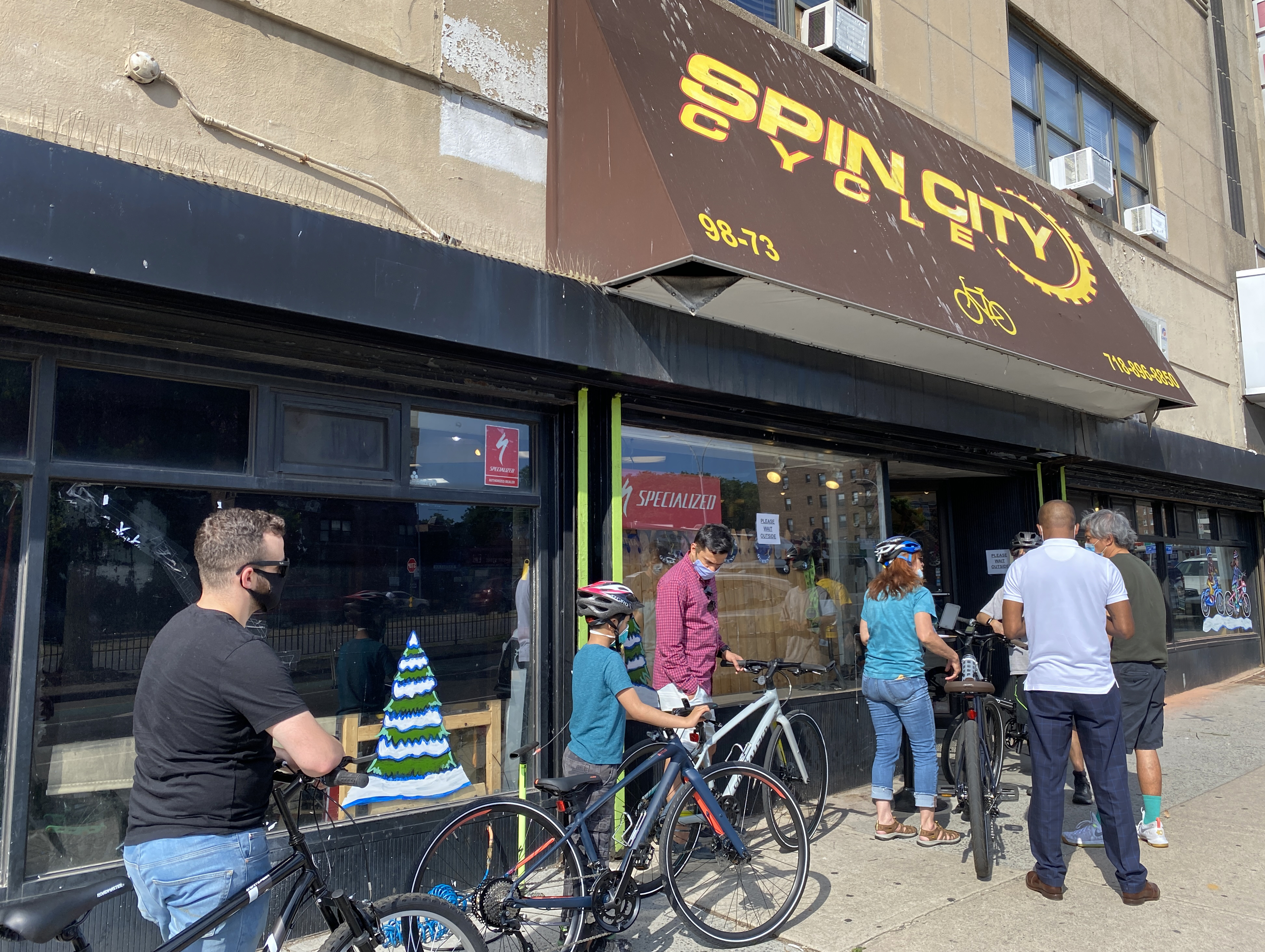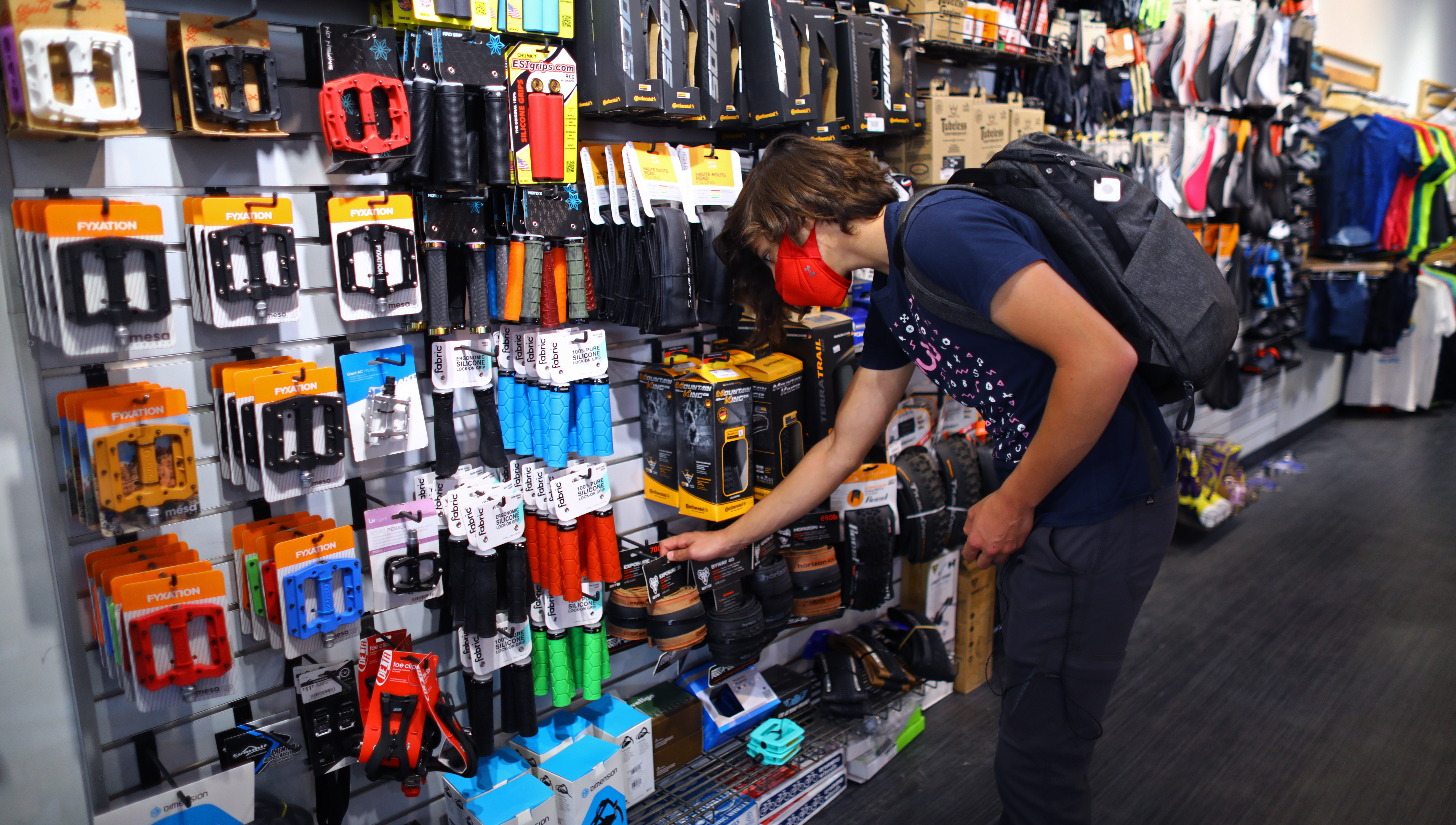Local bike shops feel the economic squeeze as Christmas looms
Supply chain issues, along with the cost of living, continue to hit retailers hard


Standing on the workshop floor of Sterlands Cycle Service in south Bristol, one does not really get the impression that the cost of living crisis is biting too much. There are bikes ready to be worked on everywhere, with a steady stream of customers arriving to deposit or pick up their fresh wheels.
"We haven't slowed down really," Josh Le Oudec, the workshop manager there says. "It's pretty constant. We're slammed, I was still servicing on Christmas Eve last year. Everyone bought bikes in the first lockdown, and everyone needs those bikes fixed. I don't know how many more we can do in Bristol now.
"Availability might be the biggest issue at the moment for us, but maybe it's because we don't rely on bike sales as much, but the cost of living crisis doesn't seem to be affecting us too much."
Across the city, in Mud Dock in the centre of town, things still seem busy and lively on the shop floor, but the man in charge there, Charlie Parry, is making less positive sounds about the state of business. As a big bike shop as well as a workshop, and café, there is more of an effect to be seen, perhaps.
"We're doing okay. It's not crazy. We're noticing things like sales of road bikes and that sort of thing are in a bit of a decline, it seems a bit quiet, especially the mid-range models.
"Cargo bikes and folding bikes are still solid, people generally spend money on them.
"It was a mostly quiet summer for the road bike market too too. But on the whole, we’re doing quite well at the moment. It’s not too bad, but we haven’t done as well as we thought we might have done in the market currently either."
The latest race content, interviews, features, reviews and expert buying guides, direct to your inbox!
Last month, we looked at whether the UK is heading for a cost of cycling crisis, so we thought it would be worth a look at the state of bike shops.
As riders we all rely on our local shop for service, good value parts and sometimes advice and support. They're staples of the cycling community in the country. We wanted to see how shops both big and small are faring as they enter the key Christmas period.
No bike shop is immune from the wider economic context. UK food price inflation soared to a record annual rate of 11.6% in October as data showed that staples such as teabags, milk and sugar became more expensive along with fresh food.
The annual price increase of fresh food last month was particularly high, up 13.3% year-on year compared with a rate of 12.1% in September.
Non-food inflation picked up to 4.1% from 3.3% the month before, meaning overall shop prices were 6.6% higher year-on-year, also a record rise for the index.
Bike shops will feel this. As costs increase manufacturers and distributors up their prices, and consumers have less disposable income to spend; add in the energy crisis and bills going through the roof, and it might be a tough time to be an independent retailer.
"The people that have the money to spend five grand plus on a bike will still do it, but it's the market around first carbon road bikes that we're going to see less and less of, as people might save money and go alloy," Mud Dock's Parry explains.
"The cost of everything keeping the shop running is going to go up for us. We're in a position right now where we're making enough to sustain that. But I imagine that smaller shops out there are going to struggle."

For Andy Ramsdale from Leisure Lake Bikes in Nottingham, it is the people looking to get into cycling that will likely feel the crunch more.
"The fear is that cycling as a hobby has, for a lot of people, never been particularly cheap," he tells Cycling Weekly. "There are people who will probably continue to buy high end products, because that's what they do. And people with money will probably still have money.
"People who look at cycling as an alternative form of transport and that kind of thing are going to get squeezed a little bit. Manufacturers will still try to keep bikes at price points, but you'll just find that specs will come down."
Don't be surprised if bikes at certain price points suddenly start to have cheaper groupsets, wheels or saddles then.
"There'll be a lot of concerns going into next year regarding energy prices and that kind of thing as well," Ramsdale continues. "It just seems to be almost a weekly thing that there are price changes from a supplier somewhere along the line, whether it's bikes, whether publicity and advertising, there seems to be continual flow of price increases.
"You look at some things and you're just like, oh my god... What was almost like a bread and butter part is now becoming actually quite an expensive part or bike as well."
As an example of something that is now more expensive than ever, he points to disc brake pads for Shimano 105 and Ultegra, which are not just hard to get hold of but rather expensive in the current climate.
It isn't just small bike shops or smaller chains that are feeling the squeeze too. Someone speaking to Cycling Weekly who works at one of the bigger retailers said that they have noticed it has been a lot quieter than usual, even for autumn and winter.
"With the cost of living crisis I’ve noticed more people asking about our finance options to pay up over the year instead of buying a bike in one go," they explained. "Bike prices rising and the cost of living crisis is making the selling process harder. I think we’ll only start to really see how it will affect business as we get closer to Christmas."

Like we saw at Sterlands in Bristol, product supply is still another issue for bike shops to be worrying about; shortages are still hanging over from the days of peak pandemic and there are other distribution issues.
"It's a bit of a weird one. There is still a lot of component shortages, road groupsets being one of the big ones," Parry says. "We can get bits and pieces, but we're still bound by a long wait time on a lot of things. It's really hard to see where we're at because the tricky thing is that inflation is now so much. It doesn't really stack up on what we were planning last year. It's hard to predict volume and money wise. It's hard to tell."
"Stock levels are just not returning to how they were pre-pandemic, it’s taking longer to get stock in and numbers just aren’t the same," the employee at a larger retailer echoes. "Customers don’t believe us when we tell them stock issues are still down to backlog from the pandemic."
There is, however, room for optimism in amongst all this. The bike industry is one part of the economy that seems to do reasonably well in a downturn; as people look to stop using their car or paying for public transport, they might well turn to two wheels.
All this might be good news for workshops, as people dig bikes from their sheds, but equally it might not be amazing for shops that rely on a big turnover to make money and keep the lights on.
"In a recession, in hard times, a lot of people trying to combine things," Ramsdale explains. "So all of a sudden, you can combine fitness, with transport, and a bit of leisure time as well."
There are other retailers that seem to be weathering the storm altogether. Sigma Sports is one such business, and is helped by its online and international presence.
“We continue to see strong demand in our core road bikes market, where customers continue to ride for fun, passion and fitness," James McEuen, the CEO of Sigma Sports explains in a statement. "Bikes are growing as consumers embrace the economic and environmental benefits of such an improved method of transport.
"Whilst the current times are challenging and turbulent, we are very optimistic about the future."
Challenging and turbulent seems like an understatement. The concern is that larger retailer like Sigma may be well placed to weather those headwinds but smaller independent shops will struggle. If your bike could use the service the time is now.

Adam is Cycling Weekly’s news editor – his greatest love is road racing but as long as he is cycling, he's happy. Before joining CW in 2021 he spent two years writing for Procycling. He's usually out and about on the roads of Bristol and its surrounds.
Before cycling took over his professional life, he covered ecclesiastical matters at the world’s largest Anglican newspaper and politics at Business Insider. Don't ask how that is related to riding bikes.